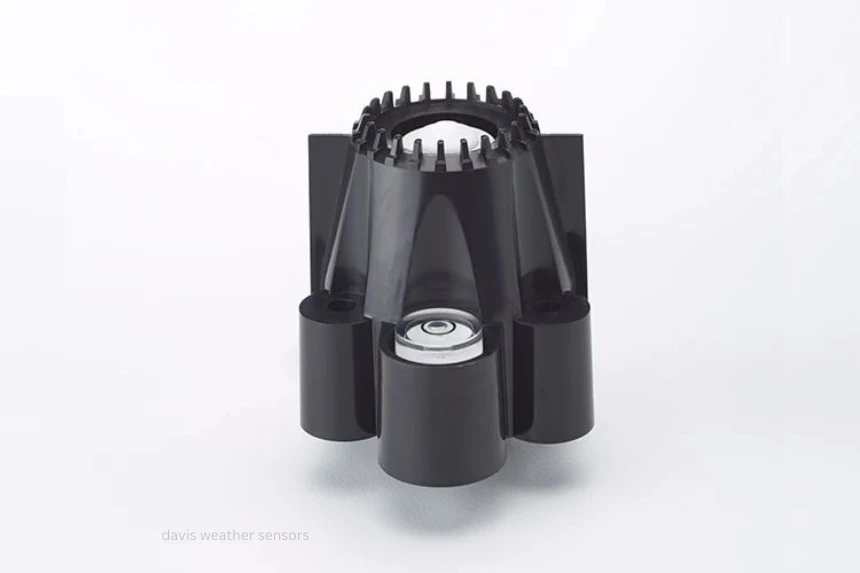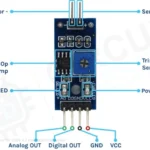Weather forecasting and environmental monitoring depend heavily on precise, reliable sensors. Among the most trusted in the industry are Davis weather sensors, renowned for their accuracy, durability, and advanced features. In this article, we’ll explore what Davis weather sensors are, their key features, benefits, and why they are popular among professionals and weather enthusiasts alike.
What Are Davis Weather Sensors?
Davis weather sensors are electronic devices designed to measure various atmospheric conditions. Manufactured by Davis Instruments, these sensors are integral components of Davis weather stations, which are widely used in meteorology, agriculture, research, and recreational activities. These sensors collect real-time data on parameters such as temperature, humidity, wind speed, wind direction, rainfall, and barometric pressure.
Davis weather sensors are known for their high precision and durability, making them suitable for both professional weather networks and hobbyist weather monitoring systems.
Types of Davis Weather Sensors
A wide variety of sensors designed to meet various weather monitoring requirements are available from Davis. Here are some of the most common types of Davis weather sensors:
1. Temperature and Humidity Sensors
The temperature and humidity of the surrounding air are measured by these sensors.The Davis Vantage Pro2 and Vantage Vue systems typically include integrated temperature and humidity sensors that deliver precise readings vital for climate monitoring and agriculture.
2. Anemometers (Wind Sensors)
Davis wind sensors detect wind speed and direction. Their robust design allows them to withstand harsh weather conditions, providing accurate data essential for weather forecasting, aviation, and wind energy assessments.
3. Rain Gauges
Davis rain sensors measure rainfall amounts with high precision. They use tipping bucket technology to record precipitation levels, enabling farmers, researchers, and weather stations to track rainfall patterns accurately.
4. Barometric Pressure Sensors
By tracking air pressure, these sensors aid in weather prediction. Davis barometric sensors are highly sensitive and provide real-time data, crucial for weather prediction models.
5. Solar Radiation Sensors
Some Davis weather systems include solar radiation sensors to measure sunlight intensity. This data is instrumental in studies related to solar energy and climate modeling.
Key Features of Davis Weather Sensors
Davis weather sensors are distinguished by their advanced features designed to ensure reliable and precise data collection. Some notable features include:
High Accuracy and Sensitivity: Davis sensors are renowned for their precise readings, often exceeding industry standards.
Durability and Weather Resistance: Designed to withstand extreme weather conditions, including storms and harsh cold, ensuring uninterrupted data collection.
Wireless Connectivity: Many Davis sensors feature wireless data transmission, allowing for flexible installation and remote monitoring.
Low Power Consumption: Optimized to operate efficiently, especially in solar-powered setups.
Ease of Installation and Maintenance: User-friendly design makes setup straightforward, with minimal upkeep required.
Data Logging and Integration: Compatibility with various data loggers and software platforms for detailed analysis.
Benefits of Using Davis Weather Sensors
Investing in Davis weather sensors provides multiple advantages:
1. Highly Reliable Data
Accuracy is paramount in weather monitoring. Davis sensors are renowned for their reliable performance, offering reliable information for important choices.
2. Versatile Applications
Whether used in agricultural operations, environmental research, educational projects, or amateur weather stations, Davis sensors adapt to diverse needs.
3. Long-lasting and Cost-effective
Their durable construction extends the lifespan, reducing maintenance costs over time. The reliability reduces the need for frequent replacements or repairs.
4. Enhanced Weather Prediction
Accurate, real-time data from Davis sensors improve the ability to predict weather patterns, which is especially important for safety and planning in agriculture, shipping, and outdoor events.
5. Community and Support
Davis Instruments has a dedicated customer support community and extensive documentation, making troubleshooting and upgrades easier for users.
Why Are Davis Weather Sensors So Popular?
The popularity of Davis weather sensors stems from their reputation for accuracy, durability, and user-friendly design. Many weather agencies, universities, research institutes, and serious hobbyists prefer Davis for their dependability and extensive product range.
Furthermore, their ability to integrate seamlessly with weather software and online platforms allows users to visualize and analyze data comprehensively, making Davis sensors a preferred choice for professional meteorological stations.
Future of Davis Weather Sensors and Technologies
As weather prediction and climate science evolve, Davis continues to innovate by introducing smart sensors with enhanced capabilities, such as IoT integration, better data logging, and solar power efficiency. These advancements will keep Davis weather sensors at the forefront of environmental monitoring technology.
Conclusion
Davis weather sensors are an indispensable part of modern weather monitoring solutions. They are the preferred option for both experts and enthusiasts because to their sturdy construction, exceptional accuracy, and wide range of uses. Whether you’re monitoring local weather conditions, conducting scientific research, or managing agricultural activities, Davis weather sensors provide the reliable data you need for informed decision-making. Investing in Davis sensors means investing in accuracy and durability for years to come.



